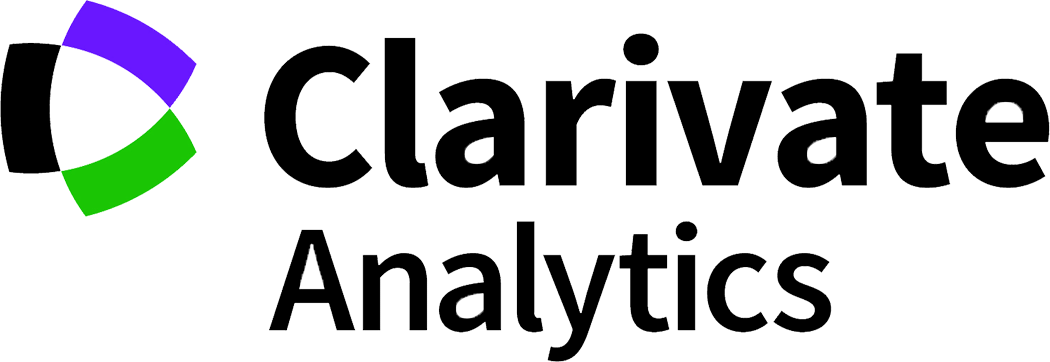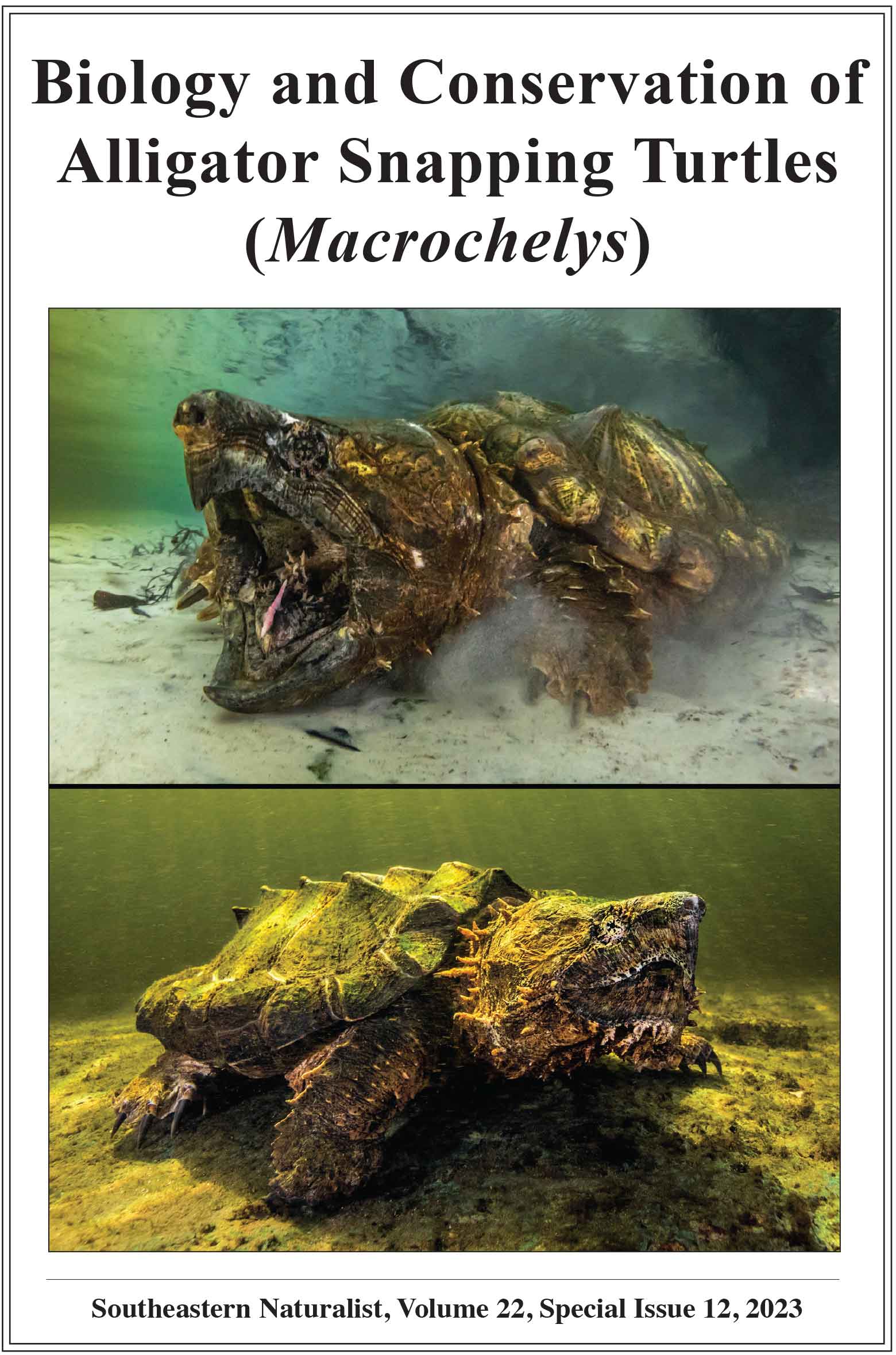Southeastern Naturalist Submission Checklist and Publication Considerations
Submission is made via email to the Editor-in-Chief, Keith Goldfarb (keithg@eaglehill.us), who usually responds with an acknowledgment within 1 day. Observe the following prior to submitting your manuscript.
Download a pdf of these considerations
Submission Checklist
✓ Authors have reviewed the journal formatting guidelines to make sure their submissions adhere to SENA’s stylistic standards.
✓ Authors have read the following publication considerations and understand the journal’s policies and expectations as stated therein.
✓ Authors have designated a corresponding author, who may be different than the lead author and, for the sake of efficiency and to avoid potential confusion, will be the sole contact with the journal throughout the publication process.
✓ In the cover email, authors firmly commit to the relevant publication charges as described below in the publication considerations, and acknowledge that the responsibility of payment ultimately lies with the authors regardless of any changes in employment or other circumstances.
✓ In the cover email, authors acknowledge that this manuscript has not been previously published, nor is it currently with another journal for consideration for publication.
✓ If the submission is for a revised version of a manuscript that has been previously rejected, either by the Southeastern Naturalist or another journal, the authors shall disclose this information and attach a summary of the changes made to address the concerns raised by the reviewers and editor during the earlier review process.
✓ If authors are aware that aspects of their manuscript might be considered controversial, we ask they disclose that in the cover email.
✓ Authors may include a brief summary description of the submission with an explanation of why they feel it merits publication and is appropriate for consideration by SENA.
✓ Authors are encouraged to provide the full names and email contact information for potential reviewers, if they are aware of individuals with the appropriate expertise and no potential conflicts of interest.
✓ Authors have attached the complete submission as both a Word doc and pdf file, with all figures, captions, and tables included at the end of the manuscript following the Literature cited. Please do not send separate figure files at this stage in the process.
Publication Considerations
Publishing format. All manuscripts are published electronically online, though authors of monographs and organizers of special issues can request a print run of professionally produced hard copies at additional cost. While issues of the Southeastern Naturalist are compiled quarterly, the journal incorporates an online early publication model, so that each article will be published promptly upon completion on both the journal’s website and in the BioOne database in an issue in progress, with its finalized page numbering allowing for complete citation.
Language considerations. The publication language of the journal is English.
Author considerations. Manuscripts may be submitted by anyone knowledgeable about natural history. Authors are encouraged to get outside review of their manuscript before submitting it to the journal. Manuscripts derived from dissertations and theses are welcome, especially when seasoned perspective is added through co-authorship by faculty members.
Geographic region covered. The Southeastern Naturalist covers all aspects of the natural history sciences of terrestrial, freshwater, and marine organisms and the environments of the southeastern portion of North America, roughly bounded from North Carolina south to Florida, west to eastern Texas, north to eastern Oklahoma, and east back to North Carolina. Manuscripts based on field studies outside of this region that provide information on species within this region may be considered at the Editor’s discretion.
Manuscript subject matter. The journal welcomes manuscripts based on fieldwork, observations, and associated lab work that focus on terrestrial, freshwater, and marine organisms, plants, and habitats. Subject areas include, but are not limited to, field ecology, biology, conservation applications, behavior, biogeography, taxonomy, evolution, anatomy, and physiology. Strict lab, modeling, and simulation studies on natural history aspects of the region, without any field component, will also be considered for publication as long as the research has direct and clear significance to field naturalists and the manuscript discusses these implications.
Manuscript length. The journal does not have any set limits on word or page counts. Rather it is important that authors concisely and succinctly present all the information needed for the reader to fully understand the research or observations being described as well as all of the relevant implications and appropriate conclusions in light of previous findings and publications on the topic, while avoiding the inclusion of extraneous or only tangentially related information (however, note that we do offer the option of including linked online supplemental material, which, though not integral to a full understanding of the manuscript, might be valuable for those wising to take a deeper dive into the research conducted).
Submission of manuscripts. Manuscripts need to be submitted electronically. Both a Microsoft Word file and a pdf file of the complete manuscript including all tables, figures, and captions should be attached to an email to the Editor-in-Chief, Keith Goldfarb (keithg@eaglehill.us). Do not at this stage send separate figure files. The email message should have “SENA Submission” at the beginning of the subject line, and should include a statement that the manuscript has not been published or submitted for publication elsewhere, either in whole or in part, and if the submission is for a revised version of a manuscript that has been previously rejected, either by the Southeastern Naturalist or another journal, the authors shall disclose this information and attach a summary of the changes made to address the concerns raised by the reviewers and editor during the earlier review process.. The e-mail should also include a statement that the authors are able to commit institutional funds and/or personal funds to cover the page charges for articles (see section below on page charges for details and exceptions). Authors are encouraged to suggest the name, qualifications, and e-mail contact information of potential guest editors (subject matter experts who oversee the review process for particular manuscripts) and/or reviewers. Please let us know if any aspects of your manuscripts could be considered potentially controversial in some way. This information helps the journal to better understand such manuscripts and to consider options for an impartial and balanced peer review process.
If submission of files as attachments to a cover email is precluded due to the overly large size of the files, please take measures to reduce the size of the files; pdfs can be optimized, and reducing the file size of all figures prior to embedding them at the end of the manuscript file will generally result in Word files of modest size. If institutional email protocol precludes the addition of attachments to messages sent to addresses outside the organization, please send the files separately using an internet file transfer site such as hightail.com, wetransfer.com, or dropbox.com (all of which are available at no cost).
We will acknowledge the receipt of all submissions, so if you do not hear from us within a week of your submission, please contact us.
Review of manuscripts. All manuscripts will be peer-reviewed by a manuscript editor in collaboration with two reviewers, all subject matter experts, each of whom will make editorial recommendations. Manuscripts will be edited in collaboration with the author(s) for readability, clarity, accuracy, and brevity. Editors generally follow conventions of the CSE Style Manual (Council of Science Editors).
Revisions, acceptance, and galley. Revisions of manuscripts should be completed promptly, generally within no more than 4 weeks time. Once a manuscript has been revised and accepted for publication, the author will be asked to provide (1) an electronic copy of the manuscript text including any tables appendices, and figure captions (in Microsoft Word), (2) a pdf file of the final version of the complete manuscript including any figures, and (3) separate high quality (clear, crisp pdf or tif or jpg at a minimum of 350 ppi when sized to 5.28 inches in width) files for each of the figures sized as they are to appear in the journal, as well as for any proposed cover image figure(s). A galley version of each article will be sent to the author and guest editor, each of whom will review the galley for any necessary changes. If substantive changes are necessary, the author will be notified. To proceed to publication, authors are required to complete and submit a signed copy of a form we provide acknowledging the authors approve of the galley for publication. Authors will get a chance to review the pdf reprint and identify any errors that should be corrected prior to publication.
Publication charges. The Southeastern Naturalist has a page charge to help defray a portion of the cost of producing the journal. The rate is $90 per page for regular journal articles, monographs (papers whose size and focus warrant stand-alone treatment), and special issue articles, and, if applicable, a $25 charge for each supplemental file. Allowances for special circumstances may be considered prior to acceptance for review. Consequences of changes in employment or affiliation need to be anticipated in a timely manner. Research sponsors, institutions, and authors understand that such contributions are routine and necessary to produce a high quality scientific journal that is published in a timely manner. Arrangements and a guarantee of payment are the personal responsibility of the authors. Without such contributions, the number of pages the journal can publish would depend too heavily on the subscription base of the journal, which would limit the kinds and number of manuscripts the journal can accept for review, thus limiting the journal’s ability to meet the expectations of authors hoping to publish in the journal. There are no additional charges for color figures in online publications. Also, at no extra cost, authors are provided a print-quality pdf version of their published article.
Copyright Policy
The publisher, Eagle Hill Institute, reserves the copyright to all its publications. Any reproduction, other than for an individual's own personal and private use, or distribution of journal content is prohibited without written permission from Eagle Hill Institute.
Authors of articles published in the Southeastern Naturalist allowed to personally distribute copies to their colleagues and post the pdf reprints of their articles on their own website or on the website or in the repository of their affiliated institution, provided such postings include full citation information along with a clear statement of the first part of the Institute's copyright policy as stated above.
Ethical Conduct
The Southeastern Naturalist requires that authors, reviewers, and editorial staff adhere to the highest ethical standards in the conduct of research, manuscript preparation, manuscript review, and evaluation. Failure to adhere to the ethical standards as summarized below may result in consequences as severe as banning authors from publication in the journal and removal of editors from the editorial board
By submitting a manuscript to SENA for consideration for publication, authors attest:
- The manuscript is the authors’ own original work, which has not been previously published elsewhere.
- The manuscript is not currently being considered for publication elsewhere.
- The presented research is reported in an honest and complete manner.
- The manuscript properly recognizes the contributions of all authors. Authorship is conferred only to those who have made substantial contributions to the research, analyses, and preparation of the manuscript. All authors take public responsibility for the paper’s content.
- The work of others is credited with proper literature citations or photo and figure credits. Portions of text from other publications are indicated by quotation marks and citation of the original source.
Ethical treatment of animals and compliance with laws and regulations
- All studies involving capture, handling, banding, or collection of species should be compliant with recognized animal care procedures and protected species regulations.
- Research must comply with all applicable laws or regulations of the jurisdiction in which the research occurred. Authors should acknowledge any research permits in the acknowledgment section of the manuscript.
Reviewer and editorial board ethical conduct
- Reviewers and members of the editorial board are expected to declare any conflicts of interest with the authors of a manuscript prior to agreeing to review. Conflict of interest includes institutional conflict (e.g., author and reviewer are members of the same institution), and personal conflict (e.g., family member, business partner, collaborator on current or previous research [previous three years], supervisor/advisor for graduate student or post-doc). Other types of conflicts may occur and it is the responsibility of the reviewer or editorial board member to acknowledge any potential conflict before providing a review.
- All reviews are expected to remain confidential with information shared only between reviewers, NENA editorial board members and staff, and authors.
The Southeastern Naturalist and its editorial staff adhere to a policy of non-discrimination with respect to race, ethnicity, religion, gender, sexual orientation, or disability.
Access Journal Content
Open access browsing of table of contents and abstract pages. Full text pdfs available for download for subscribers.
Issue-in-Progress: Vol. 23 (3) ... early view
Check out SENA's latest Special Issue:












 The Southeastern Naturalist is a peer-reviewed journal that covers all aspects of natural history within the southeastern United States. We welcome research articles, summary review papers, and observational notes.
The Southeastern Naturalist is a peer-reviewed journal that covers all aspects of natural history within the southeastern United States. We welcome research articles, summary review papers, and observational notes.